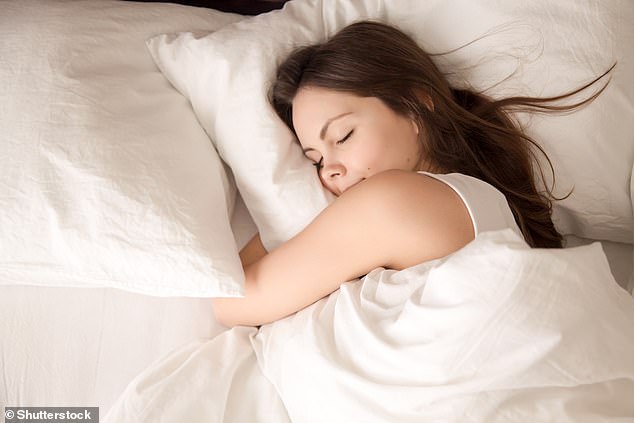<!–
<!–
<!– <!–
<!–
<!–
<!–
Two-thirds of Britons get by on just six hours of sleep a night – far less than the seven to nine hours recommended by the NHS, a survey has found.
This is despite more than 80 percent of people saying that getting a good night’s sleep is the most important factor in their overall well-being.
The survey by bedding company Woolroom found that 40 per cent of people reported increased stress levels after a poor night’s sleep and 36 per cent said they felt anxious.
About 40 percent said they felt this way once or twice a week, and seven percent reported having this feeling constantly.
Of those surveyed, 22 percent said they had sought professional help because of the lingering effects of poor sleep.

Two-thirds of Britons get by on just six hours of sleep a night – far less than the seven to nine hours recommended by the NHS, a study has found


This is despite more than 80 percent of people saying that getting a good night’s sleep is the most important factor in their overall well-being.
Fluctuations in temperature were one of the main causes of disturbed sleep with the inability to feel comfortable, and stess also factors. One in ten said their partner’s snoring kept them awake.
Woolroom found that menopausal and menopausal women lose an average of more than two hours of sleep a night — or about two nights of sleep a week — because of their symptoms.
Respondents reported suffering from poor sleep due to their menopausal symptoms for an average of four years, with only one percent of respondents saying their symptoms did not interfere with their sleep at all.
The survey also suggested that 15 per cent of people wash their mattress protector, duvet and pillows once a week, 20 per cent once a fortnight and 11 per cent every two months.
About eight percent wash their bedding once a year, three percent every two years and 10 percent don’t wash it at all.
Woolroom chief executive Chris Tattersall said: ‘In creating the Clean Sleep Report, we wanted to understand the nation’s attitudes to sleep and their awareness of the impact of the sleep environment on our health and the planet.
‘What has emerged from the survey results is that there is a clear disconnect between people’s attitudes towards sleep and the quantity and quality they actually get.
“We also revealed a striking difference between people’s perception of the importance of sleep and their understanding of the environmental impact of their bedding choices.”
Mortar Research surveyed 2,057 adults between January 25 and January 29.
